HP DH
Some people just haven't got enough to do really, have they?
(I blame Susan).
The Literary Blog of Clare Dudman

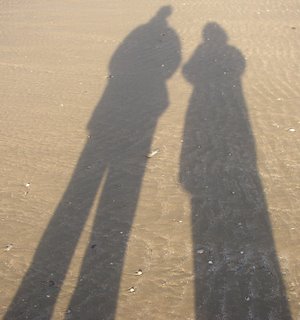





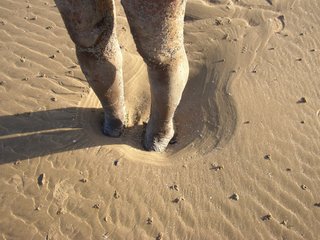



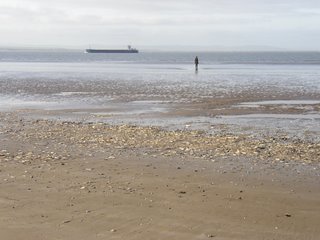
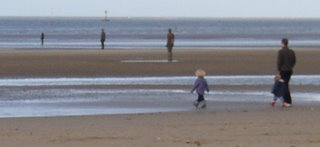
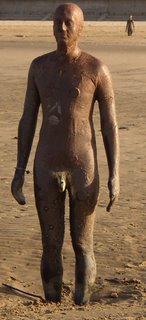

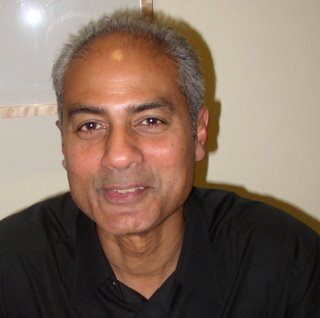
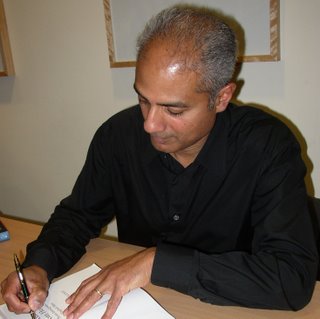
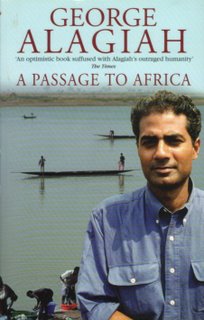

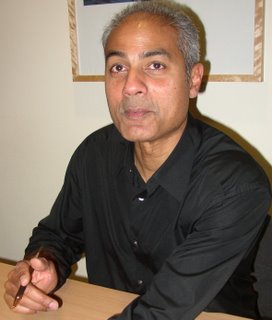
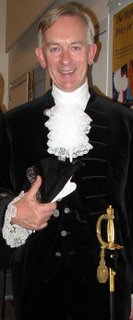
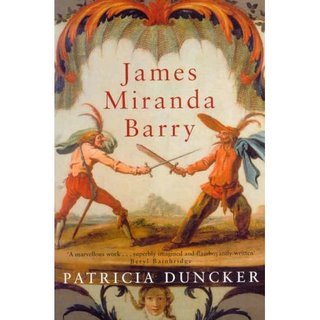
 Patricia Duncker approves of prizes and awards. She says they are important in that they give a writer confidence and a sense of achievement. During the reception before the event one of the judges told me that the administrator of the award had made special pains to ensure that the entries were indeed anonymous - the judges would have no idea who had won until the name of the author was read out at the end of the evening. And that is at the very end. Whoever organises the evening must take malicious pleasure in drawing the evening out for as long as possible. First the invited author is introduced, then she gives a talk, then a reading of about fifteen minutes, then the chairman of the judges gives a long summary of that years entry, then the three runners up are announced and then the winning story read out by the guest novelist.
Patricia Duncker approves of prizes and awards. She says they are important in that they give a writer confidence and a sense of achievement. During the reception before the event one of the judges told me that the administrator of the award had made special pains to ensure that the entries were indeed anonymous - the judges would have no idea who had won until the name of the author was read out at the end of the evening. And that is at the very end. Whoever organises the evening must take malicious pleasure in drawing the evening out for as long as possible. First the invited author is introduced, then she gives a talk, then a reading of about fifteen minutes, then the chairman of the judges gives a long summary of that years entry, then the three runners up are announced and then the winning story read out by the guest novelist.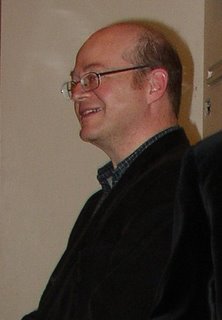
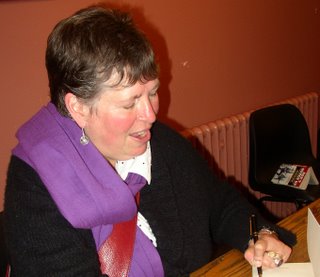 Patricia Duncker also believes that a study of the history of the form is useful. She herself is an expert on eighteenth and nineteenth century literature.
Patricia Duncker also believes that a study of the history of the form is useful. She herself is an expert on eighteenth and nineteenth century literature.
 I am looking forward to reading them soon. They were both first published by Serpent's Tail the successful small press that is also publishing the Fall Anthology 'Perverted by Language' next year. Patricia Duncker is also contributing a piece of flash fiction to one of Pete Wild's other projects - another anthology. In fact Patricia Duncker seems to be quite a friend of the small press and acts as an editor for one of them in Wales. She is a friendly and approachable person and now have to report that on Wednesday night she won my slavish respect for evermore. When I asked her to sign my books she asked me for my name and it turned out that she has read one of my books. She could even remember its name. I was most impressed - and, I have to say, rather stupidly delighted.
I am looking forward to reading them soon. They were both first published by Serpent's Tail the successful small press that is also publishing the Fall Anthology 'Perverted by Language' next year. Patricia Duncker is also contributing a piece of flash fiction to one of Pete Wild's other projects - another anthology. In fact Patricia Duncker seems to be quite a friend of the small press and acts as an editor for one of them in Wales. She is a friendly and approachable person and now have to report that on Wednesday night she won my slavish respect for evermore. When I asked her to sign my books she asked me for my name and it turned out that she has read one of my books. She could even remember its name. I was most impressed - and, I have to say, rather stupidly delighted.







Remember that it isn’t always the sensational stuff that writers are looking for, it can just as easily be something that you take for granted like having raised twins or knowing how to grow beetroot. Mind you, if you know how to fly a helicopter or have worked as a film extra, do feel free to let the rest of us know about it :-)"
I guess you can approach this in two ways: the starkly and shockingly honest or the more light-hearted and quirky...but it interesting either way, I think, so here goes...

 David Crystal is an entertaining speaker, peppering his talk with demonstrations and movement. There was a section where he carried out a conversation with himself and this was resumed, at intervals, throughout the talk.
David Crystal is an entertaining speaker, peppering his talk with demonstrations and movement. There was a section where he carried out a conversation with himself and this was resumed, at intervals, throughout the talk. David Crystal offered his own criteria: if you visit the bathroom in the middle of the night does it occur to you to check your email on the way back to bed? There were others but this one appealed to me - because, I am afraid, the answer was yes. All the time. Without fail. In fact sometimes I lie awake thinking about going on-line - well not on-line exactly, just writing something. Usually it ends up on my desk top or in the middle of a novel but sometimes it does end up in the middle of a blog or an email. Strangely, after I have finished I go back to bed and go straight to sleep. This is not supposed to happen, I know, something non-stimulating is supposed to be the ideal thing to do, but it doesn't work for me.
David Crystal offered his own criteria: if you visit the bathroom in the middle of the night does it occur to you to check your email on the way back to bed? There were others but this one appealed to me - because, I am afraid, the answer was yes. All the time. Without fail. In fact sometimes I lie awake thinking about going on-line - well not on-line exactly, just writing something. Usually it ends up on my desk top or in the middle of a novel but sometimes it does end up in the middle of a blog or an email. Strangely, after I have finished I go back to bed and go straight to sleep. This is not supposed to happen, I know, something non-stimulating is supposed to be the ideal thing to do, but it doesn't work for me. Blogs, he says (after a quick explanation of what they are which I think I needn't give in this context!) quickly become focused and bloggers find other bloggers with similar interests. I nodded my head again here. It also gives the linguist a chance to see something quite extraordinary; that is language in its 'naked form' (i.e. how it is used with no interference from editors). There has been nothing like this since Chaucer's time. Chaucer wrote language as it sounded (just as in my competition in fact - only 10 days left now) and was inconsistent in spelling since Chaucer used several different scribes (some of them were Dutch, apparently, which is why extra letter were put in some words - like the 'h' in ghost).
Blogs, he says (after a quick explanation of what they are which I think I needn't give in this context!) quickly become focused and bloggers find other bloggers with similar interests. I nodded my head again here. It also gives the linguist a chance to see something quite extraordinary; that is language in its 'naked form' (i.e. how it is used with no interference from editors). There has been nothing like this since Chaucer's time. Chaucer wrote language as it sounded (just as in my competition in fact - only 10 days left now) and was inconsistent in spelling since Chaucer used several different scribes (some of them were Dutch, apparently, which is why extra letter were put in some words - like the 'h' in ghost).
 The internet will help to keep endangered languages alive. 50% of languages are in danger of extinction and the internet is a boon; both enabling individual speakers to keep in contact even if distant, and being of big interest to teenagers - a vital aspect in keeping the language alive. For instance there are many sites in Welsh and this is helping to preserve the Welsh language with some success. Which reminds me - I really must try again to log on to that Lampeter on-line site and go over my Welsh. So many resolutions - so little time.
The internet will help to keep endangered languages alive. 50% of languages are in danger of extinction and the internet is a boon; both enabling individual speakers to keep in contact even if distant, and being of big interest to teenagers - a vital aspect in keeping the language alive. For instance there are many sites in Welsh and this is helping to preserve the Welsh language with some success. Which reminds me - I really must try again to log on to that Lampeter on-line site and go over my Welsh. So many resolutions - so little time.




 2. Also from the Royal Academy on Monday night is a live webcam broadcast of Douwe Draaisma's lecture on memory called 'Why Life Speeds Up As You Get Older' (the same title as his latest book which is a collection of essays. It starts at 6.30pm here.
2. Also from the Royal Academy on Monday night is a live webcam broadcast of Douwe Draaisma's lecture on memory called 'Why Life Speeds Up As You Get Older' (the same title as his latest book which is a collection of essays. It starts at 6.30pm here. 'Three score years and ten,' Joan Bakewell says about her age, pointing out the biblical connection - the ominous biblical connection. Three score years and ten is equated with the end of life, she says, a preparation for death; but it should not be that. Dying is its own separate phase and for most of us it will, we hope, be a short one. Old age should not be viewed as a phase of decline but a period that should be welcomed in its own right. There are, after all, certain benefits to being older than the people around you : wisdom; a treasure house of memories; a free bus and tube pass if you live in London so you can wander at will'; sometimes a period of intense creativity (in people such as Verdi and Picasso who have spent their whole lives being creative as well as those who haven't and suddenly feel an urge to paint or write a novel); a love of learning for its own sake uncorrupted by career ambition; and, oddly, time. An older person has time to pursue interests and activities that a younger person has not.
'Three score years and ten,' Joan Bakewell says about her age, pointing out the biblical connection - the ominous biblical connection. Three score years and ten is equated with the end of life, she says, a preparation for death; but it should not be that. Dying is its own separate phase and for most of us it will, we hope, be a short one. Old age should not be viewed as a phase of decline but a period that should be welcomed in its own right. There are, after all, certain benefits to being older than the people around you : wisdom; a treasure house of memories; a free bus and tube pass if you live in London so you can wander at will'; sometimes a period of intense creativity (in people such as Verdi and Picasso who have spent their whole lives being creative as well as those who haven't and suddenly feel an urge to paint or write a novel); a love of learning for its own sake uncorrupted by career ambition; and, oddly, time. An older person has time to pursue interests and activities that a younger person has not. Joan Bakewell, then, describes a very positive view of life post seventy. Her column 'Just Seventy' (a play on the name of the now defunct teen magazine which was aimed at the young teen market, 'Just Seventeen') in the Guardian is something that she suggested to the editor and a collection of these have now formed the basis of her book THE VIEW FROM HERE; a book which I am sure is just as 'exhilarating, funny and always thought-provoking' as Terry Jones says it is (on the cover). However there is, of course, a 'but' here. Joan Bakewell is healthy in body and mind. She is mindful of her health and when she felt her hearing was not quite up to par she wasted no time in finding herself a hearing specialist in Harley Street (an area of expensive private clinics), and when she found herself becoming a little forgetful arranged a series of tests for that too. Her hearing and mental condition, she says, were found to be fine - 'for a woman of her age' (she smiled at the qualification). This rapidity of expert treatment of course is a benefit of being wealthy. As I listened to this charming and attractive woman extolling the benefits of becoming older I kept thinking of some of the older people I know; the ones that are isolated, poor, ill, constantly wracked with mental and physical pain. I kept wondering if they would agree and felt sure that they would not. Old age is not a time to be poor, Joan Bakewell admits, coming around eventually to considering what some would consider to be the realities of life. There are sad times. Bereavement, particularly of partners, she says, is traumatic. Her voice grew quieter then, her as if she was remembering, but then it became determinedly brighter again. Bereavement, she says, can also herald in a new era. There is not the same sense of reward and partnership but there is a new style of life, There is no point in grief holding you down. There are different rewards that can be spiritually enriching.
Joan Bakewell, then, describes a very positive view of life post seventy. Her column 'Just Seventy' (a play on the name of the now defunct teen magazine which was aimed at the young teen market, 'Just Seventeen') in the Guardian is something that she suggested to the editor and a collection of these have now formed the basis of her book THE VIEW FROM HERE; a book which I am sure is just as 'exhilarating, funny and always thought-provoking' as Terry Jones says it is (on the cover). However there is, of course, a 'but' here. Joan Bakewell is healthy in body and mind. She is mindful of her health and when she felt her hearing was not quite up to par she wasted no time in finding herself a hearing specialist in Harley Street (an area of expensive private clinics), and when she found herself becoming a little forgetful arranged a series of tests for that too. Her hearing and mental condition, she says, were found to be fine - 'for a woman of her age' (she smiled at the qualification). This rapidity of expert treatment of course is a benefit of being wealthy. As I listened to this charming and attractive woman extolling the benefits of becoming older I kept thinking of some of the older people I know; the ones that are isolated, poor, ill, constantly wracked with mental and physical pain. I kept wondering if they would agree and felt sure that they would not. Old age is not a time to be poor, Joan Bakewell admits, coming around eventually to considering what some would consider to be the realities of life. There are sad times. Bereavement, particularly of partners, she says, is traumatic. Her voice grew quieter then, her as if she was remembering, but then it became determinedly brighter again. Bereavement, she says, can also herald in a new era. There is not the same sense of reward and partnership but there is a new style of life, There is no point in grief holding you down. There are different rewards that can be spiritually enriching.